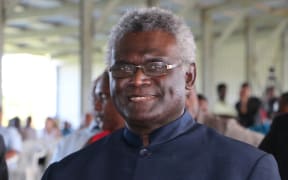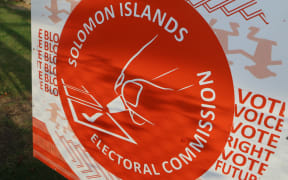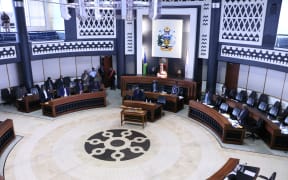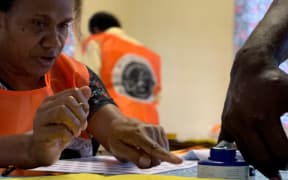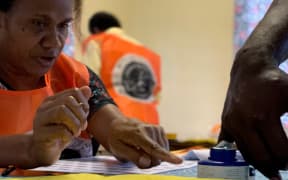With the date for the Solomon Islands parliament to elect a prime minister expected to be announced this week, MPs may be trading more than just horses.
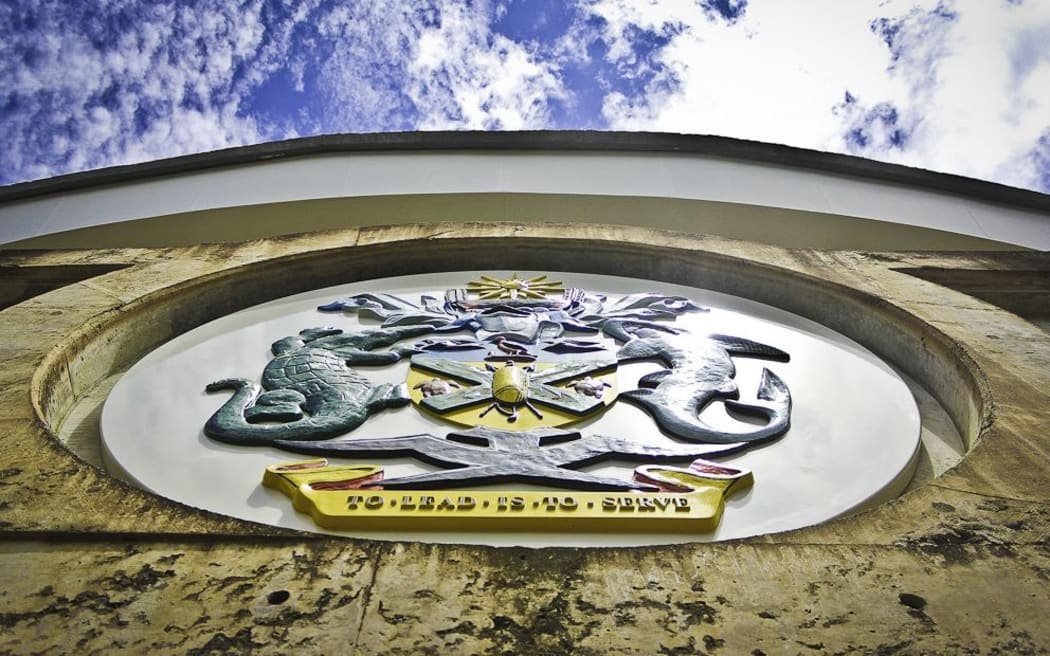
Solomon Islands coat of arms on Parliament buildings in Honiara Photo: RNZI / Koroi Hawkins
Parliament has confirmed all but one of 50 MPs have reported in following the general election earlier this month.
All are required to do so before the Governor General can call the election of the prime minister by secret ballot.
In the meantime, two coalitions of political parties have formed, one around the previous prime minister, Rick Hou, and the other around MPs in the previous opposition.
Both groups claim to have the majority of MPs but some are listed on both sides.
Coalitions forming
Four political parties have signed a new coalition agreement and are claiming to have the numbers to form the next government.
The coalition includes both prime ministers from the last parliament: Mr Hou with his Democratic Alliance Party and Manasseh Sogavare with his newly reformed Our Party. The other two parties are the Kadere Party and the Peoples First Party.
In a statement released on Sunday night, the Democratic Coalition for Advancement claimed it had the support of 33 of the country's 50 newly elected MPs.
However, only 28 MPs turned up for the traditional coalition group photo shared by the Kadere Party on its Facebook page.
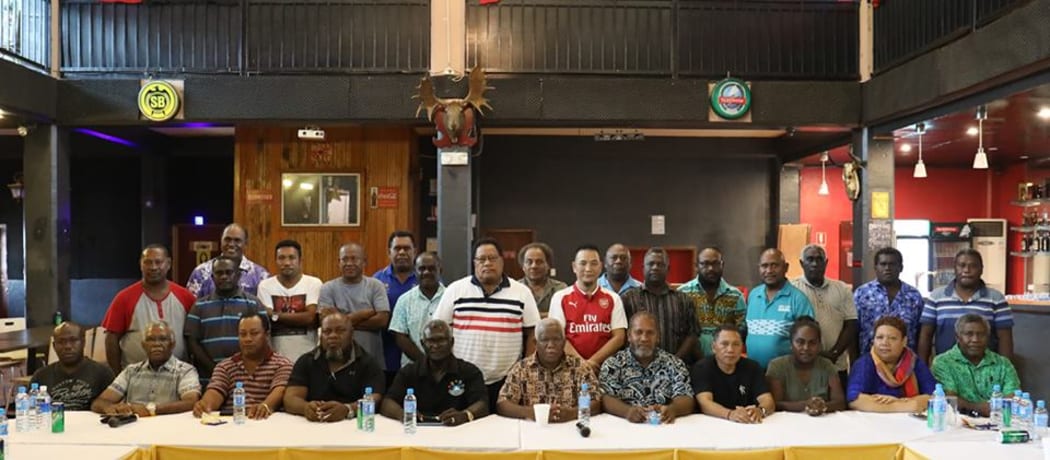
The Solomons Democratic Coalition for Advancement one of two coalitions vying to form the new government in Solomon Islands. Photo: Kadere Party
Some of the members in the new group also featured in an earlier formed grand coalition of six political parties, which is also claiming to have the majority of MPs.
The parties in the grand coalition are the Democratic Party, United Party, People's Alliance Party, People's First Party, United Democratic Party and the Party for Rural Advancement.
The numbers game
The mathematical impossibility of the two coalitions' membership claims are consistent with the Solomon Islands practice of horse-trading among MPs, known locally as the "numbers game".
The practice is often associated with the government forming period after national elections but is in fact ever present in Solomon Islands politics.
It frequently manifests in no confidence motions against the country's prime ministers.
In the 40 years since independence, only two prime ministers, Solomon Mamaloni elected in 1989 and Allan Kemakeza in 2001, have ever completed a full four year term.
A government in Solomon Islands is considered to be doing well if it is still in power halfway through its term.
At the heart of the unpredictable "numbers game" is the fact that every MP in Solomon Islands is legally an independent, free to jump ship, change political parties and even start their own political party at the drop of a hat.
Party politics
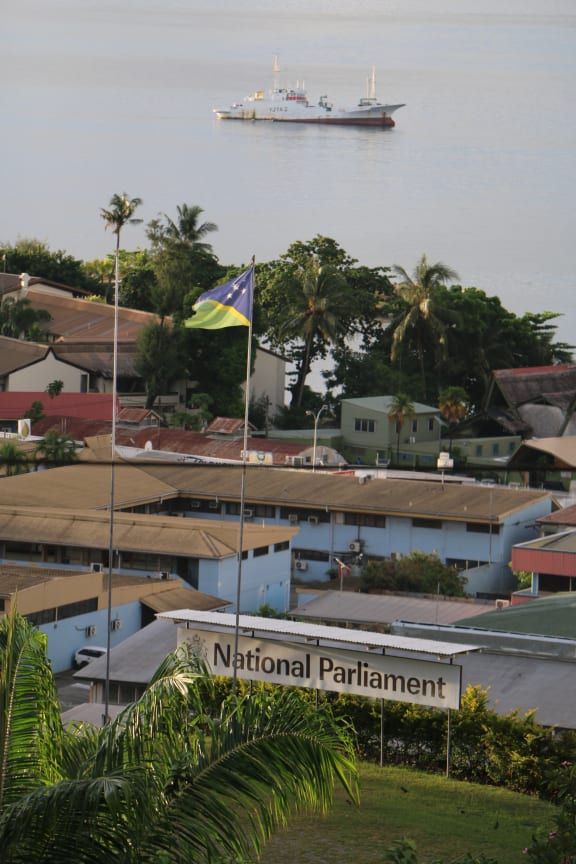
Photo: RNZ Pacific/ Koroi Hawkins
New legislation has been brought in to try and give political parties more prominence in Solomon Islands politics by tying the formation of government and eligibility for the prime ministership to party membership.
But this last election again saw more independent candidates winning parliamentary seats than party-affiliated ones.
It was not until after the election that MPs started to gravitate towards political parties in the hope of being part of a new government.
This suggests that political parties in Solomon Islands are still very much a means to an end, more akin to a group of people making the same wager than sharing the same goals.
A final important piece to the mathematical puzzle of "the numbers game" is the inducements necessary to hold the fractious coalitions together.
The prime ministership and senior ministerial portfolios are the biggest bargaining chips, followed by lucrative chairmanships of various boards and licensing regulators.
At the bottom of the scale is the much talked about but never proven allegations of hundreds of thousands of dollars in cash paid to undecided or opportunistic MPs to switch sides.
Those lowest on the political food chain, referred to locally as "grasshoppers" may switch sides multiple times in the coming days or weeks leading up to the formation of government.
In theory, each shift is accompanied by a cash payment which has earned the nickname, "fundraising".
The political wrangling is expected to come to a conclusion when the Governor General announces the date for the election of the prime minister this week.

